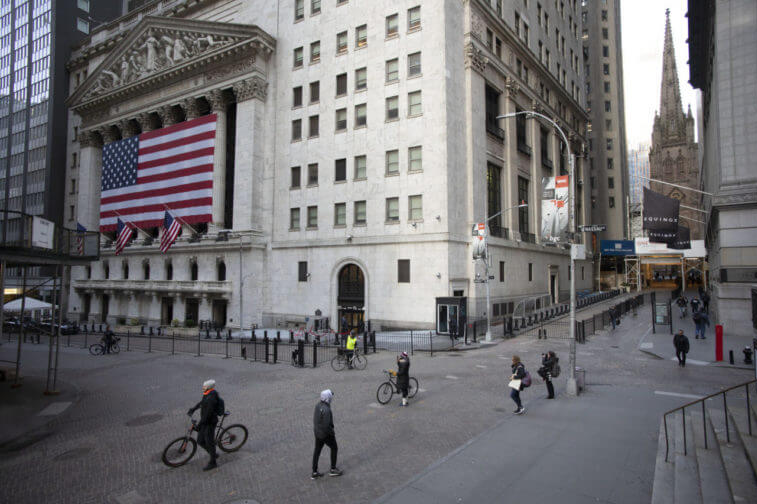93% of the fund managers are expecting a recession in the next 12 months
April 14, 2020 @ 20:42 +03:00
The Dow Jones Industrial Average continued to climb on Tuesday as investors cheered a potential reopening of the U.S. economy and earnings season kicked off. But mounting evidence that this rally is premature suggests the stock market could be in for a crash landing over the next few weeks.
On Tuesday, the International Monetary Fund (IMF) said it’s expecting the financial crisis caused by coronavirus to rival that of the Great Depression. The organization is expecting the global economy to shrink by 3% this year.
In 2021, the IMF believes a partial recovery will begin, but that GDP will likely remain below pre-crisis levels: A partial recovery is projected for 2021, with above trend growth rates, but the level of GDP will remain below the pre-virus trend, with considerable uncertainty about the strength of the rebound.
The IMF’s stark warning echos a chorus of other calls for caution as the economic impact of coronavirus continues to deepen. The World Trade Organization is expecting to see a 13-23% contraction in worldwide trade and the Organization for Economic Coordination and Development warned that the economic downturn would be lasting.
Why Is The Dow Still Soaring? The only explanation for the Dow’s apparent immunity to the worsening economic data is a perceived V-shaped recovery. The stock market is still betting on a short, deep downturn followed by a sharp recovery. Sooner or later, this exuberant rally is going to come back down to earth as reality sets in—we’re in this for the long haul.
Whether the U.S. starts to open up parts of its economy in May or not, consumer activity is unlikely to return to normal levels for at least a few years. That’s because even if the economy reopens, in the absence of a vaccine the public will still have to adhere to social distancing guidelines. It’s also because the sky-high unemployment figures we’ve been seeing will persist.
Nomura Holdings’ Masanari Takada noted that the Fed’s unprecedented intervention likely has a lot to do with the stock market’s stability. He noted that the so-called big money controlled by hedge funds and long-term investors will likely remain sidelined for “some time.” A Bank of America investor survey confirms Takada’s point of view. The data showed that investors’ cash positions have risen to their highest levels since 9/11 as pessimism rose to an “extreme” level. Ninety-three percent of the fund managers surveyed said they’re expecting to see a recession in the next 12 months, while only 15% said they see the V-shape path materializing.
Don’t Be Fooled by the Stock Market’s Rally. Smart Money is Staying on the Sidelines, CCN, Apr 14







